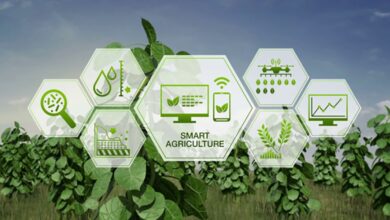
A Comprehensive Overview of Mycology In 2023? Imagine a world without mushrooms, yeasts, or molds. It would be quite different, wouldn’t it? These fascinating organisms belong to the field of mycology, a branch of biology dedicated to the study of fungi, current advancements, future trends, and challenges. So, let’s put on our mycologist hats and embark on this journey of fungal discovery!
Introduction
Mycology, derived from the Greek word “mykes” meaning fungus, is the scientific discipline that focuses on the study of fungi. Fungi are eukaryotic microorganisms that can be found in diverse habitats worldwide. While some fungi cause diseases, others play crucial roles in ecosystems, such as decomposing organic matter and forming symbiotic relationships with plants. In recent years, mycology has gained significant attention due to its multifaceted applications in various fields.
What is Mycology?
Mycology encompasses the study of fungi, including their taxonomy, morphology, genetics, ecology, and physiology. It involves exploring their life cycles, reproduction, and interactions with other organisms. Fungi exhibit remarkable diversity, with over 144,000 known species, and it is estimated that millions more await discovery. They can be found in various environments, from forests to deserts, and even inside our own bodies.
Historical Background of Mycology
The origins of mycology trace back to ancient civilizations, where fungi were used for medicinal and culinary purposes. However, it wasn’t until the 17th century that scientific investigations into fungi began. Notable pioneers, such as Antonie van Leeuwenhoek and Carl Linnaeus, laid the foundation for modern mycology through their observations and classifications of fungi. Over time, advancements in microscopy, genetics, and molecular techniques revolutionized the field, leading to a deeper understanding of fungal biology.
Importance of Mycology in 2023
In 2023, mycology plays a crucial role in various domains, including medicine, agriculture, and environmental conservation. Understanding fungal pathogens and their impact on human health is vital for effective diagnosis and treatment of fungal infections. Moreover, agricultural mycologists strive to combat crop diseases caused by fungi, ensuring food security and sustainable farming practices through the development of fungal control measures. Additionally, mycologists studying environmental mycology contribute to our understanding of fungal diversity in ecosystems and play a crucial role in mycological research and conservation efforts.
Branches of Mycology

Mycology can be divided into several branches, each focusing on a specific aspect of fungal study. Let’s explore some of the prominent branches:
Medical Mycology
Medical mycology is dedicated to the study of fungal infections in humans. Fungi can cause a wide range of diseases, from superficial infections like athlete’s foot to life-threatening systemic infections. Understanding the diagnosis, treatment, and prevention of these infections is essential for maintaining human health.
Fungal Infections in Humans
Fungal infections, also known as mycoses, can affect various body parts, including the skin, nails, respiratory system, and bloodstream. Common examples include candidiasis, aspergillosis, and cryptococcosis. These infections can be challenging to diagnose and treat, often requiring specialized techniques and antifungal medications.
Diagnosis and Treatment
Medical mycologists work closely with healthcare professionals to develop effective diagnostic methods for fungal infections. They also contribute to the development of antifungal drugs and therapies. The field continually evolves as new fungal pathogens emerge and as antifungal resistance becomes a growing concern.
Agricultural Mycology

Agricultural mycology focuses on the study of fungi that impact crops and agricultural systems. Fungal diseases can cause significant losses in crop yield and quality, affecting food production and economic stability.
Read More: The Impact of Education on our Lives In 2023
Crop Diseases
Fungal pathogens can infect various crops, including cereals, fruits, vegetables, and cash crops. Examples of crop diseases caused by fungi include wheat rust, potato blight, and citrus canker. Agricultural mycologists study the lifecycle, epidemiology, and management of these diseases to develop sustainable and environmentally friendly control strategies.
Fungal Control Measures
To combat crop diseases, agricultural mycologists employ various strategies. These include the use of resistant crop varieties, cultural practices, biological control agents, and fungicides. Integrated pest management approaches are emphasized to minimize the reliance on chemical interventions and promote sustainable agriculture.
Environmental Mycology
Environmental mycology explores the role of fungi in natural ecosystems. Fungi play crucial roles in nutrient cycling, decomposition, and symbiotic associations with plants.
Fungi in Ecosystems
Fungi are nature’s recyclers, breaking down organic matter and returning essential nutrients to the ecosystem. They form symbiotic relationships with plant roots, known as mycorrhizae, aiding in nutrient uptake and enhancing plant growth. Environmental mycologists study fungal diversity, distribution, and ecological functions to better understand and conserve these ecosystems.
Mycological Research and Conservation
Research in environmental mycology contributes to our understanding of fungal ecology and their response to environmental changes. This knowledge is crucial for conservation efforts, as fungal diversity is threatened by habitat destruction, pollution, and climate change. Mycologists work to preserve fungal habitats, document new species, and advocate for the conservation of these often overlooked organisms.
Current Advancements in Mycology
Mycology is an evolving field, and recent advancements have opened up new avenues of research and application. Two significant areas of progress include genomics and molecular techniques, as well as biotechnological applications.
Genomics and Molecular Techniques
Advancements in genomics have revolutionized the study of fungi. Scientists can now sequence and analyze fungal genomes, providing insights into their evolutionary history, genetic diversity, and functional capabilities. This has led to breakthroughs in understanding fungal pathogenicity, symbiosis, and ecological roles. Molecular techniques such as polymerase chain reaction (PCR) and DNA barcoding have also facilitated accurate identification and classification of fungal species.
Biotechnological Applications
Fungi have remarkable biotechnological potential. Mycologists are exploring the use of fungi in various applications, including the production of enzymes, antibiotics, biofuels, and bioplastics. Fungal biotechnology offers sustainable and eco-friendly alternatives in industries such as agriculture, pharmaceuticals, and waste management.
Future Trends and Challenges in Mycology
As we look ahead, several trends and challenges emerge in the field of mycology. Understanding and addressing these will shape the future of fungal research and application.
Climate Change and Fungal Ecology
Climate change has profound effects on fungal ecology, impacting their distribution, abundance, and interactions with other organisms. Mycologists are studying the responses of fungi to changing environmental conditions, such as shifts in temperature, precipitation patterns, and carbon dioxide levels. This knowledge is crucial for predicting and managing the ecological consequences of climate change.
Antifungal Resistance
The emergence of antifungal resistance poses a significant challenge in the treatment of fungal infections. Mycologists and healthcare professionals are working together to develop innovative strategies to combat resistance, such as the discovery of new antifungal compounds, combination therapies, and improved diagnostic methods. Addressing antifungal resistance is crucial to ensure effective treatment options for fungal diseases.
Exploring Novel Fungal Species
Despite our current knowledge of fungi, vast numbers of undiscovered species likely exist. Exploring and cataloging fungal biodiversity is a priority for mycologists. New species hold the potential for novel biochemical compounds, ecological interactions, and biotechnological applications. Efforts are underway to explore uncharted ecosystems and utilize advanced technologies for the discovery of previously unknown fungi.
Conclusion
Mycology, the study of fungi, encompasses a wide range of fascinating topics and applications. In 2023, mycology plays a vital role in human health, agriculture, and environmental conservation. Through branches such as medical mycology, agricultural mycology, and environmental mycology, researchers investigate fungal infections, crop diseases, and fungal ecology. Recent advancements in genomics and molecular techniques, as well as biotechnological applications, have expanded our understanding of fungi and their potential. However, future challenges, including climate change impacts and antifungal resistance, need to be addressed. By embracing these challenges, exploring novel species, and fostering interdisciplinary collaborations, mycology will continue to thrive and contribute to our understanding of the fungal world.
FAQs
Are all fungi harmful to humans?
No, not all fungi are harmful to humans. While some fungi can cause infections, many others have beneficial roles or are harmless.
Can fungi be used in sustainable agriculture?
Yes, fungi play important roles in sustainable agriculture. They can help improve soil fertility, control pests and diseases, and enhance crop growth through symbiotic associations.
Are there any potential applications of fungi in medicine?
Yes, fungi have promising applications in medicine. They are a source of antibiotics, anticancer drugs, and other therapeutic compounds. Fungi also play a role in drug discovery and drug delivery systems.
How do mycologists identify different fungal species?
Mycologists use a combination of morphological, molecular, and ecological characteristics to identify fungal species. DNA sequencing and molecular techniques have become increasingly important for accurate identification.











